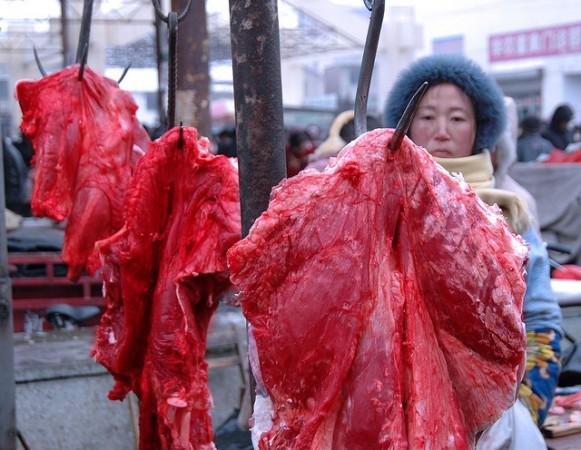
Eating too much red meat in early adulthood can increase the risk of breast cancer, according to a new study. On the other hand, including more nuts, legumes, fish and poultry into the diet helped lower the risk.
The study reported in BMJ mainly focused on the role of dietary protein sources in the development of breast cancer.
Nearly 88,803 women, aged between 26 and 45, enrolled in the Nurses' Health Study II, were included in the new study, during which dietary patterns of the participants were noted down. The participants were provided with a food questionnaire, from which they had to choose one option like -never, less than once in a month or six or more daily. The list covered intake of red meat, including pork, beef, lamb and hamburger; poultry like chicken and turkey; fish like tuna, salmon, sardines and mackerel; legumes like lentils, peas, beans and nuts.
Information about some other factors related to breast cancer including smoking, hormone- oral contraceptive use, family history of breast cancer, history of benign breast disease, age, height, weight, race and menopausal status among the participants was also collected and analysed. Researchers also recorded dietary patterns of the women during adolescence.
During the 20 –year follow-up, nearly 2,830 women developed breast cancer. While higher red meat intake was associated with 22 percent increased risk of breast cancer, it went up by 13 percent with each additional serving per day. Interestingly, replacing one serving of red meat with poultry reduced risk of developing breast cancer by 17 percent. Similarly, when one serving of red meat was replaced with legumes, nuts, poultry and fish, the women achieved 14 percent reduction in risk of developing breast cancer.
"Higher red meat intake in early adulthood may be a risk factor for breast cancer, and replacing red meat with a combination of legumes, poultry, nuts and fish may reduce the risk of breast cancer," the authors wrote.
This is not the first study to show a link between red meat and breast cancer. In November 2012, a team of researchers reported red meat intake to an increased risk of breast cancer in white women.
Citing the health risks, health experts recommend people to limit their red and processed meat intake to 70 g per day. Though red meat is a good source of many nutrients including zinc, iron, vitamin B12, B6 and iron; white meat, which is low in calories, is generally considered to be healthy.
Following are some research-proven health risks of eating too much red meat:
- Increases the risk of Alzheimer's Disease
- Shortens life span
- Can cause damages to the heart
- Cancer
- High blood pressure















